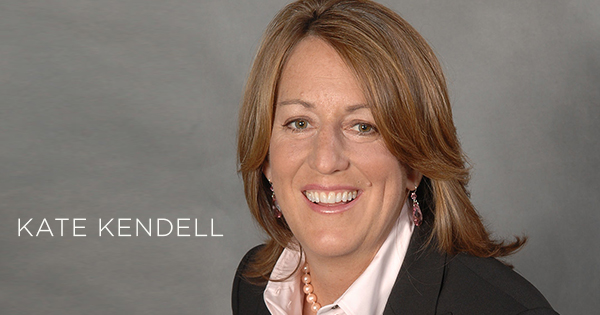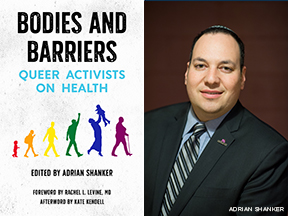Between COVID-19 and actions by the Trump administration to roll back LGBT health protections, healthcare has been front and center on our mind these last few months. The critically-acclaimed new anthology Bodies and Barriers: Queer Activists on Health (PM Press) is timely. This book is edited by Adrian Shanker, executive director of Bradbury-Sullivan LGBT Community Center in Allentown, PA and it includes essays by 26 queer activists from around the world. Contributing authors write about barriers to affirming health care for LGBT people of all ages. Of interest to lesbians in particular, this book includes conversations about breast and gynecologic cancers, social isolation for rural lesbian communities, and caregiving and housing concerns for older lesbians. The following is an excerpt from the afterword to Bodies and Barriers by lesbian icon Kate Kendell.
 “Throughout my career, I’ve been involved with some of the LGBT movement’s greatest fights: marriage equality, nondiscrimination in the workplace, parenting rights, inclusion in sports, ending conversion therapy, protecting youth, elders, and LGBT families. The common thread that links all these issues is health and well-being. It is not possible to be a healthy, vital person if you are under assault for who you are. Precisely because so many LGBT individuals struggle with stigma, safety, accept- ance, and belonging, many in our community still struggle with high rates of mental and physical health challenges.
“Throughout my career, I’ve been involved with some of the LGBT movement’s greatest fights: marriage equality, nondiscrimination in the workplace, parenting rights, inclusion in sports, ending conversion therapy, protecting youth, elders, and LGBT families. The common thread that links all these issues is health and well-being. It is not possible to be a healthy, vital person if you are under assault for who you are. Precisely because so many LGBT individuals struggle with stigma, safety, accept- ance, and belonging, many in our community still struggle with high rates of mental and physical health challenges.
Despite the odds, our movement for LGBT liberation has come far. In my twenty-two years leading the National Center for Lesbian Rights (NCLR), I had a front-row seat to our national progress. Out of nothing and in the face of hostility from our own government we built the HIV/AIDS infrastructure in the 1980s to fight back and save our men and everyone impacted by the pandemic. When I started at the NCLR in the 1990s, LGBT parents routinely lost custody of their children as they came out of heterosexual marriages. Now, sexual orientation is not a basis for losing custody. In the early 2000s, many openly wondered if we should fight for the freedom to marry or if such a fight would be successful in their lifetimes. In 2015, we won marriage nationwide at the U.S. Supreme Court.
We’ve come a long way from the time when LGBT people were dying left and right from a treatable virus to witnessing some of those early AIDS activists marrying longtime partners. But the LGBT community still experiences open hostility and disregard from health care professionals, some LGBT health needs are still not covered equitably by health insurers, and policy makers still sometimes lack the political will to advocate for equitable policies for our community.
From obstetricians refusing to treat lesbians, to gay men being ridiculed for wanting a prescription for pre-exposure prophylaxis (PrEP). Health care professionals can do better. Policy makers can do better. All of us can do better.
Our movement for equality, for liberation, has been breathtaking in its gains. But we still fight for our humanity, our health, and our happiness. The priority for a new generation must be the health of every one of us and the promise of a long, healthy, fully embraced life.”
Adrian Shanker, the book’s editor, is the executive director of Bradbury-Sullivan LGBT Community Center in Allentown, PA and is a specialist in LGBT health policy.
Kate Kendell led the National Center for Lesbian Rights, a national legal organization advancing the civil and human rights of LGBT people and their families, for twenty-two years.



